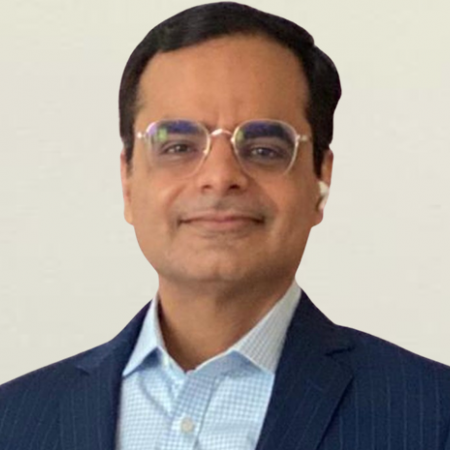June 13, 2023
With over four decades of experience in food products, JKT Foods is a major international player of agri-commodities. Sonia Sharma speaks to Mr Kanak Thakker to get his exclusive insights.


Our main commodity line used to be sesame seed and peanuts, but many of our loyal customers from markets in the far-east started to ask for pulses – specifically mung beans.
That’s the reason we started to trade mung beans from different origins in order to supply our customers. We also regularly import pulses into India, as we saw huge potential in trading there. In addition to this, in India there is a huge growing demand of pulses, which is being driven by population growth, changes in dietary preferences and nutritional security.
Some key issues facing the pulse industry at present include climate change, fluctuating prices and market volatility. For example, this year Argentina is facing a huge issue of drought, which will create an imbalance in the supply chain of some of the major commodities.
The industry is overcoming these challenges through innovative farming practices, research and development for improved crop varieties, and increased collaboration among stakeholders.
The main opportunities in the pulse industry lie in the growing demand for plant-based proteins, because pulses are an excellent source of protein, as well as having an incredibly low environmental footprint.
Additionally, there is an increasing interest in sustainable and healthy diets, which can be fulfilled by incorporating pulses into diets, and in traditional markets, such as India, the supportive policies of the government have increased the trade between India and Africa, giving the economy a boost.
In India, pulses are a staple food, and the country plays a significant role in production and consumption, and we are one of the biggest importers of pigeon peas in India.
Due to the fact that India is such a large market for pulses, we are strategically located in both Mumbai and Chennai, which are the two largest markets for pulses in the country with direct access to the port. This means we can serve the Indian consumer with the best pulses from around the world.
The Netherlands and the UK are also important players in the European market, where there is a rising interest in plant-based diets. JKT Foods are also an organic certified trader for the European market, trading in organic pulses from all over the globe.
And with Dubai being a major trade hub, it facilitates the global distribution of pulses and serves as a connecting point between different markets for us. In particular, Dubai also specifically facilitates trade between Africa and different destination countries.
We are seeing the rise of plant-based diets all over the world and, naturally, this has increased demand for organic and sustainably produced pulses, as well as more development of innovative pulse-based products, such as plant-based meat substitutes and snacks.
Yes definitely, consumer awareness around sustainable diets are increasing. The main drivers behind this include concerns around health, animal welfare, and environmental sustainability.
We have seen this rise after the Covid-19 pandemic, where the mentality of the consumer has shifted to where people are opting for healthier options, and, of course, pulses fit into this trend perfectly.
Consumers are demanding more sustainable and ethically-sourced food options – including pulses – which are seen as an environmentally friendly and nutritious choice. We have also seen a big upshift in organic food demand since consumers are demanding healthier options.
We decided to sponsor an event like Pulses 23, so that we can demonstrate our commitment to the industry, gain visibility and networking opportunities, as well as contribute to the exchange of knowledge and advancements within the pulses sector.
I believe the key takeaways from an event, such as Pulses 23, included insights into the latest industry developments, emerging trends, technological innovations, market opportunities, and networking with industry experts and stakeholders.
It alsos provide a platform for discussing challenges and the potential solutions for the growth and sustainability of the pulses industry.
The future of the pulses industry looks promising. With an increasing interest in sustainable diets, plant-based proteins, and environmentally friendly food production, pulses are expected to play a significant role.
Advancements in research, technology, and farming practices will also likely lead to improved yields, quality, and cost-effectiveness. Collaborative efforts among industry players, along with consumer demand, will drive further innovation and growth in the industry.
Disclaimer: The opinions or views expressed in this publication are those of the authors or quoted persons. They do not purport to reflect the opinions or views of the Global Pulse Confederation or its members.